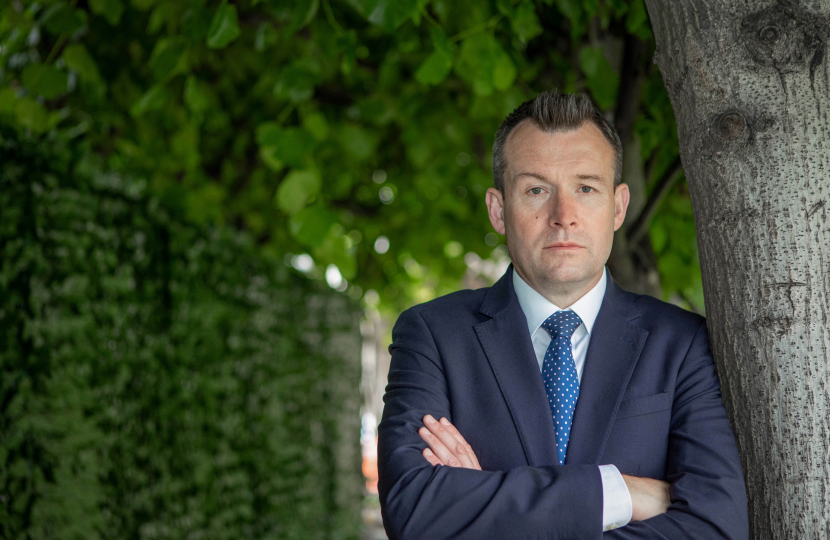
Stuart Anderson MP says South Shropshire "Abandoned" by Chancellor's Budget
South Shropshire has been "abandoned" by the Chancellor's Budget, Stuart Anderson MP has said. Responding to the Autumn Budget delivered on 30th October, Stuart has said that the measures "lets down" rural communities like South Shropshire. He added that the Chancellor has broken her party’s election pledge that: “Labour will not increase taxes on working people”, with several tax changes being introduced - hitting rural communities the most including farmers, commuters, and small businesses.
While there will be no immediate increases to VAT, Income Tax, or National Insurance, businesses will be hit with a 1.2% hike in National Insurance contributions (NICs), with the threshold at which companies start making contributions reduced from £9,100 to £5,000. The Institute for Fiscal Studies has already stated that changes to NICs would be a “straightforward breach” of the governing party's election promises not to raise taxes on working people, with around three quarters or so of the increase estimated to flow through to lower pay.
Stuart added that the changes constitute a "tax on jobs" that would be felt by the UK’s 5.5 million small business, which support 27 million jobs and account for £4.5 trillion of annual turnover. He said that this would further damage business confidence, which has already plummeted to its lowest level since the General Election - with investor anxiety having also spiked in recent days. The changes could also prevent small businesses and charities from hiring staff and increasing wages - with over half of charity sector employees working in charities with less than 50 staff.
Stuart also slammed changes to Agricultural Property Relief (APR) and Business Property Relief (BPR), with a cap being introduced from 2026. He said that this would damage family farms in the longer-term, since the reliefs had enabled them to be handed down to future generations for free of charge. Stuart had called on the government last month to rule out any changes, with Shropshire having the highest number of farm holdings of any county in England - forming nearly 20% of enterprises.
Meanwhile, the government said it will be reviewing the funding spent on flood defences and farm schemes from 2025-26 "to ensure they are affordable", although they had been endorsed as 'world-leading'. Stuart has said the decision is short-sighted, having warned in September that such cuts would risk national food security. But the Environment Secretary has said farmers will have to “learn to do more with less.”
The cap on bus fares is also being halved, with some bus operators saying services may have to be reduced or even removed as a result. Stuart had campaigned for the cap to be kept at £2, after the last government introduced it to help people facing cost of living pressures save on everyday travel costs. The increase will mean higher fares for millions of people, with the poorest and those in rural areas hit the hardest.
Stuart endorsed the decision to keep the decade-long freeze on fuel duty, which had saved drivers an average of £1,900, and a boost to local transport projects, both of which he had campaigned for. However, he said that halving the cap on bus fares was bad news for commuters - with some bus operators saying services may have to be reduced or even removed as a result.
In its manifesto, Stuart's party had committed to extending the £2 bus fare cap in England for the entirety of the next Parliament, after it was introduced to help people facing cost of living pressures save on everyday travel costs. The increase will mean higher fares for millions of people, with the poorest and those in rural areas hit the hardest.
Stuart Anderson MP said:
“The Chancellor has once again neglected the needs of rural communities and abandoned places like South Shropshire. Billed as one of the ‘greatest economic moments in Labour history’, the Budget has failed to deliver. It results in only broken promises, increased costs, and reduced support for farmers, workers, and commuters. In refusing to invest in the potential of rural communities, the government has left us behind. Family farms will be hurt by changes to inheritance relief, while jobs will be threatened by increased taxes on Shropshire’s small businesses. Meanwhile, the decision to halve the cap on bus journeys is bad news for commuters. I do not believe that this is the end of the conversation about what the government can do to support local communities like ours. I will continue to urge them to do so.”





